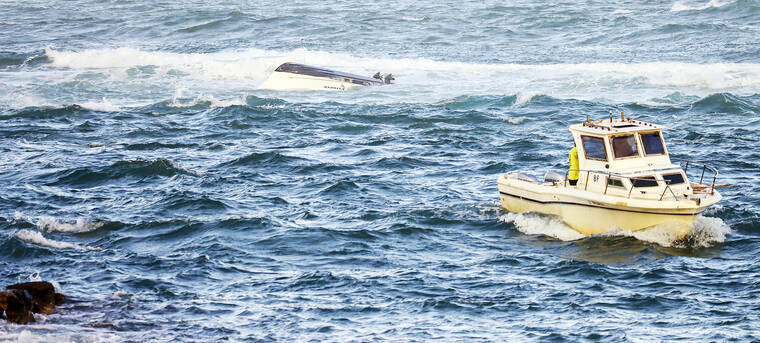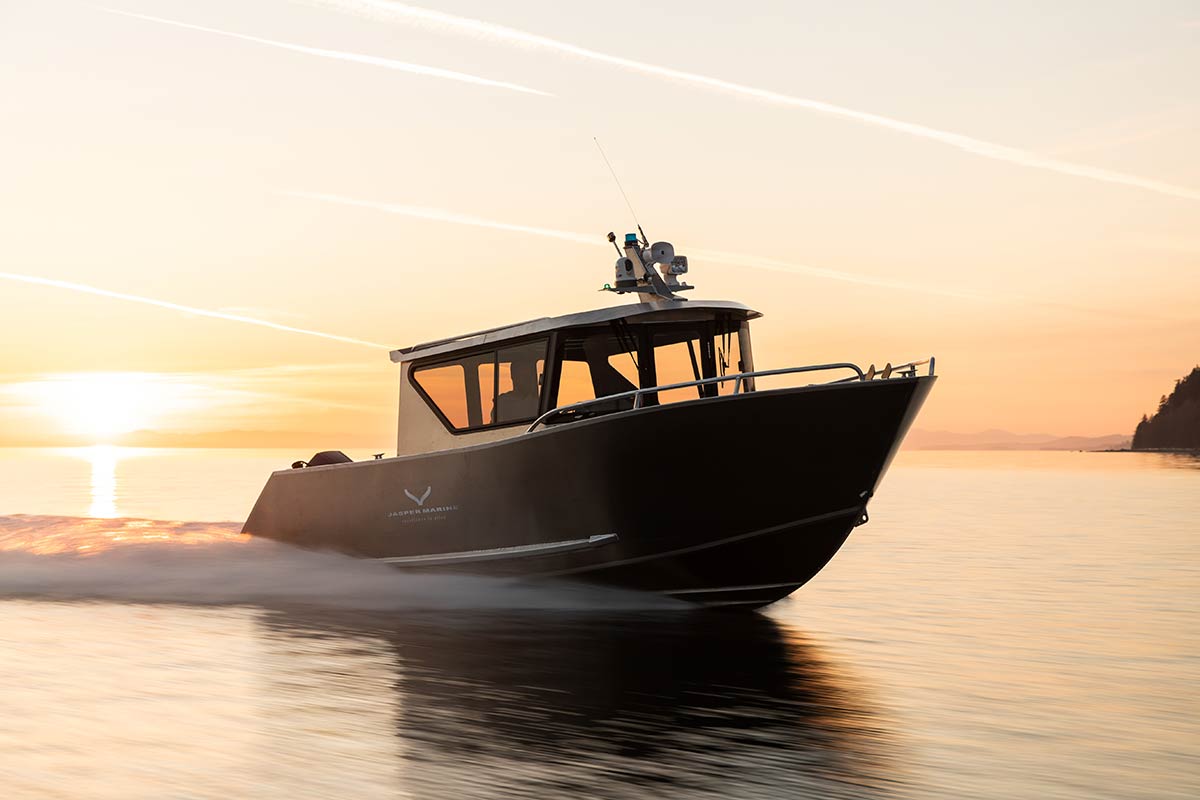Capsizing is one of the most common fears among boaters, especially those operating small, open boats. While almost any vessel can capsize under the wrong conditions, smaller boats are particularly susceptible due to their size and design. The good news? Most boats will float even if they’re overturned, which is far better than having them sink to the bottom of the water. Ideally, with the right precautions, capsizing can be avoided altogether. However, every boater should be prepared and know exactly what to do if their boat flips over. So, what’s the best course of action if your small, open boat capsizes?

Common Causes of Boat Capsizing
Understanding why boats capsize is the first step toward preventing it from happening. The most common reasons include overloading, leaks, and adverse weather or water conditions.
Overloading
Overloading occurs when you exceed the boat’s weight capacity or improperly distribute weight, causing imbalance. Smaller boats are especially sensitive to extra weight, while larger vessels may be more forgiving.
Manufacturers typically provide weight capacity limits, which can be found on the boat itself, in the owner’s manual, or on the manufacturer’s website. Boaters must strictly adhere to these guidelines. Pushing the limits, even in calm waters, is a disaster waiting to happen.
Leaks
Leaks can easily destabilize a boat. As water accumulates at the bottom, it disrupts stability, making the vessel more vulnerable to waves and wakes. This can quickly lead to capsizing.
Leaks are often caused by issues like damaged hulls, loose fittings, or missing drain plugs. Always inspect your boat thoroughly before heading out, making sure the drain plug is properly secured. To avoid forgetting it, try attaching the plug to your boat key as a reminder before you start the engine.
Poor Weather and Water Conditions
Bad weather and rough waters are notorious for capsizing boats. While larger vessels can handle choppy conditions, smaller boats are much more easily overwhelmed. This becomes particularly risky when the boat is overloaded, sitting low in the water, and exposed to moderate waves or strong winds.
Experienced boaters know how quickly conditions can change. Always check the weather forecast before heading out, and if you notice sudden changes, head back to shore right away. Knowing how to respond when caught in rough conditions is equally essential. For instance, instruct passengers to stay low and near the boat’s center to maintain balance.
What To Do If Your Boat Capsizes
Even with all the precautions in place, there’s always a chance your boat could capsize. Here’s what to do if you find yourself in that situation:
Stay Calm and Save Your Energy
Panic is your worst enemy. Instead of frantically swimming, try to stay calm and conserve energy by floating or treading water. If possible, climb onto the overturned boat to get out of the water. Staying dry and above the water will help you stay warmer, reducing the risk of hypothermia. Keeping a positive mindset and reminding yourself that help is on the way can also make a big difference.
Stay Near the Boat
Staying close to your boat significantly increases your chances of being found. A boat’s hull is much more noticeable from a distance than a person floating alone. If you’re strong enough, try gathering floating debris and tying it to the boat. This makes your position more visible to rescuers.
Check On Your Passengers
If you’re not alone, make sure everyone is accounted for. Ensure everyone has a life jacket on or is holding onto something that helps them stay afloat. Call out to your fellow passengers and encourage them to stay close to the boat.

Signal For Help
Once everyone is safe and accounted for, it’s time to attract attention. Use signal flares, whistles, or even bright-colored cloth tied to paddles or fishing rods to make yourself more noticeable. If you managed to salvage your phone or VHF marine radio, try using them to call for help.
Preparing For The Worst
No matter how experienced you are, things can go wrong. It’s always smart to prepare for the worst-case scenario.
- File a Float Plan: Let someone onshore know where you’re going and when to expect your return. If you don’t check in on time, they can alert rescue services.
- Carry Proper Safety Equipment: Make sure your boat is equipped with reliable signaling devices.
- Distribute Weight Properly: Arrange seating and storage to maintain good balance.
- Check Weather Reports: Keep an eye on the forecast before and during your trip, especially if your marine GPS has weather alert functions.
Final Thoughts
Boating is generally safe, but capsizing incidents can and do happen. Preparing for the worst and knowing how to respond if your small open boat flips over can be lifesaving. Consider taking a boating safety course to enhance your knowledge and skills, and always keep safety your top priority when you’re out on the water.
Would you like me to help you improve this even more and make it sound even more engaging? Also, do you want me to help you optimize this for SEO if you’re planning to publish it online?


Leave a Reply